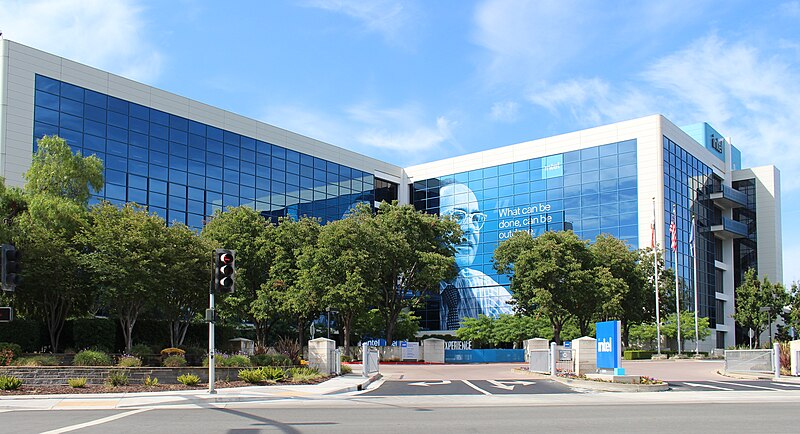Intel Corporation (INTC) is facing intense pressures in the rapidly evolving chip industry, evidenced by a significant slump in its stock value following a disappointing revenue forecast. The company's shares plummeted more than 12% after announcing a second-quarter revenue projection that fell short of analysts' expectations, with estimates ranging from $12.5 billion to $13.5 billion, against a consensus of $13.57 billion from LSEG data. This downturn reflects broader concerns that Intel is lagging behind competitors like Nvidia (NVDA) in the crucial artificial intelligence (AI) sector, where demand for advanced AI chips is reshaping enterprise spending and technological priorities.
Intel's struggles come amid a broader shift within the technology sector towards more specialized AI chips, which has seen businesses increasingly opt for Nvidia’s offerings over traditional central processing units (CPUs) that have been Intel’s stronghold. This transition has been detrimental to Intel's position in the data center market, a core area of its business. Despite efforts to innovate, as seen with the launch of the Gaudi 3 AI chip, analysts from Goldman Sachs express concerns that Intel may continue to lose market share to Nvidia and other competitors that are making significant inroads in the data center compute market.
Market Overview:
-Intel stock plunges over 12% on disappointing Q2 revenue guidance.
-Forecast shortfalls attributed to intensifying competition in the AI chip market.
-Investor confidence wanes as Intel trails rivals like Nvidia (NVDA).
Key Points:
-Intel's Q2 revenue outlook falls below analyst estimates, raising concerns.
-The company struggles to keep pace with Nvidia's dominance in advanced AI chips.
-Planned $100 billion factory expansion and new AI chip launch fail to impress investors.
-Analysts remain skeptical about Intel's ability to regain lost market share.
Looking Ahead:
-Intel hopes a PC upgrade cycle fueled by a new Windows version will boost demand.
-The company faces an uphill battle against established competitors in the AI space.
-Long-term turnaround efforts may require significant time and investment.
Amidst these challenges, Intel is not standing still. The company has announced ambitious plans to revitalize its manufacturing capabilities, including a $100 billion investment to expand factories across four U.S. states. This massive capital injection underscores Intel’s commitment to reclaiming its competitive edge and adapting to market shifts. Additionally, Intel remains hopeful that upcoming upgrades in the PC sector, spurred by a new version of Microsoft's Windows operating system, will boost demand for its chips later in the year, potentially stabilizing its position in the consumer electronics segment.
However, Intel’s current predicament highlights the significant hurdles it faces in a technology landscape that is increasingly dominated by AI and specialized computing. While the company is taking substantial steps to address these challenges, the path to recovery appears long and fraught with uncertainty. This situation starkly contrasts with the successes of its peers like Microsoft (MSFT) and Alphabet (GOOGL), which have not only benefited from their investments in Nvidia’s technology but have also advanced their in-house chip development, further intensifying the competitive landscape for Intel.





